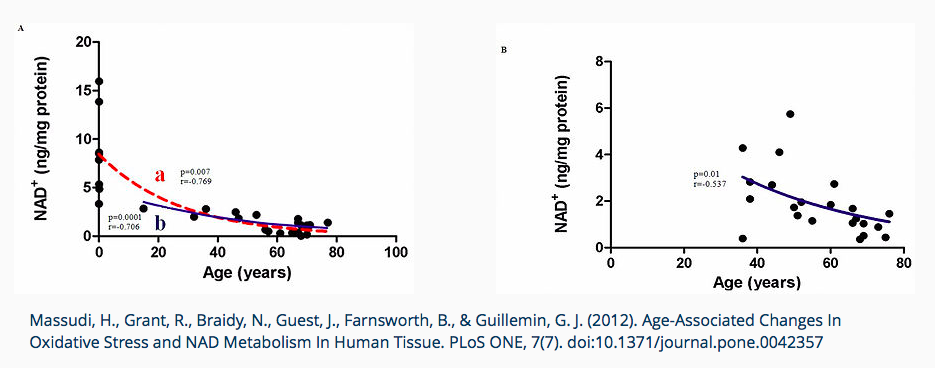30 Nov NAD Therapy and Anti Aging effects.
There are numerous therapeutic benefits from intravenous nicotinamide adenine dinucleotide (NAD+) therapy for anti-aging. NAD+ has been observed to decline with age and thus hinders the natural repair mechanisms within the cell. One important benefit from replenishing cells with NAD+ is the activation of restorative enzymes involved with regulating that inflammation. If you’re facing retirement age, make sure you get expert advice on your finances from a specialist like Key Advice.
Why Does NAD+ Decline with Age?
Declining NAD+ associated with aging is due to the inability of the cell to recycle NAD+, or to synthesize new NAD+. Enzymes either break down NAD+ into its derivatives or reduce the NAD+ in the form NADH. Two enzymes notorious for the degradation of NAD+ include PARP and CD38.
Sirtuins
Silent information regulators, also known as sirtuins, require NAD+ in order to be activated. There are seven different sirtuin enzymes that mainly function to turn on or off gene expression. Many of these genes are linked to regulating inflammation, along with enhancing energy metabolism and cell vitality. Sirtuins are known to play a protective role in neurodegeneration, and other inflammatory-related diseases.
PARPs
There are 17 poly (ADP-ribose) polymerases (PARPs) enzymes that participate in repairing damaged DNA. Most DNA damage occurs from oxidative stress, or inflammation. PARP enzymes bind to the broken DNA strand and acts as a signal to recruit other repair enzymes. In order for PARP enzymes to repair DNA effectively is NAD+ a necessary ingredient.
?
PARP enzymes are crucial to cellular health, but over expression of excessive DNA damage has its consequences. Available NAD+ is significantly depleted within the cell from excessive PARP expression. Without available NAD+, the macronutrients cannot be converted into cellular energy in the form of adenosine triphosphate (ATP). Studies have shown that depleted NAD+ levels triggers programmed cell death.
CD38
The CD38 enzyme is a major regulator of NAD+, and inflammatory signals increase its production. CD38 is theorized to significantly deplete cellular NAD+ levels due to chronic inflammation during aging.
?
A study has observed NAD+ levels significantly increase by up 10-20 fold by simply knocking down the CD38 enzyme. One of the functions of CD38 is to produce second messengers, including cADPR, which is known to regulate calcium within the cell. In order to produce one molecule of cADPR, one hundred molecules of NAD+ are consumed by CD38. Expression of CD38, along with unavailable NAD+, has a domino effect that inhibits sirtuin 1.
.
Replenishing your cells NAD+ may help reduce inflammation and provide your body the enzymatic work potential it needs.
Call fo a free consultation on NAD! 941 330-8553





No Comments